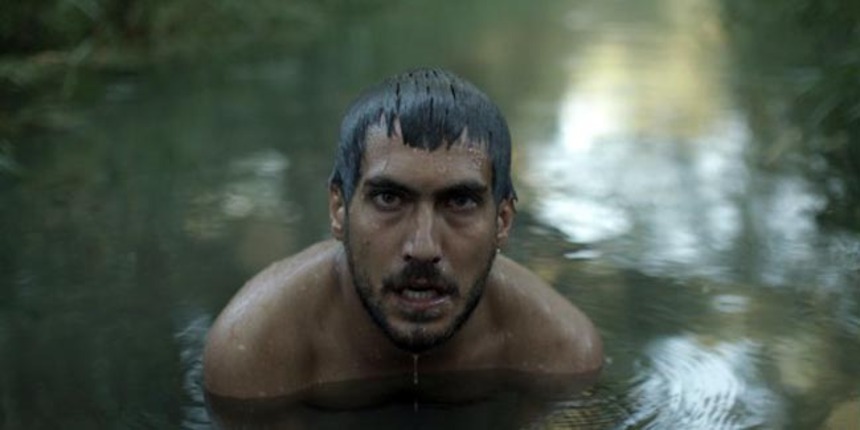Berlin 2012 Review: BEYOND THE HILL (Tepenin Ardi)

On the surface, Beyond the Hill is a fairly straight-forward slow-burn psychological thriller about an unseen enemy. However, within this structure, Director Emin Alper weaves in pointed political and cultural allegory along with elements of (deep breath...) dark comedy, revisionist-westerns, family-dramas, mysteries and horror films. That he's able to deftly balance all of these aspects without losing the audience or sacrificing the film's suspense is all the more impressive.
The film takes place in a rural valley in Turkey underneath rocky hills. Here, an old man named Faik spends his retirement tending land in his hometown with the help of a sharecropper family. As the movie begins, an ongoing conflict between Faik and the nomads over the hell is apparently reaching a boiling point, and the old man is already fraught with anger and paranoia. After his son and grandsons arrive to visit, everything goes off the deep end.
The less said about how the plot develops, the better, which is a relief since the complicated character dynamics which fuel the film's momentum would take at least another five hundred words to describe. Not to worry though, thanks to a meticulous script and excellent acting across the board, everything is communicated smoothly and without fuss.
As the various alliances, suspicions and checkered histories escalate so does Faik's obsessive paranoia about the nomads. If Faik seems to be blowing the rivalry out of proportion, well, that seems to be the norm with this family. In fact, one slightly problematic aspect of the film is the fact that almost every character is either completely misguided, self-absorbed or in many cases, both. The notable exception is Meryem, the only adult female. But, though she's clearly more level-headed then all of the men combined, no one really listens to her. Probably not the first woman this has ever happened to.
Still, the acting is superb, and the flaws actually create the ticking-time-bomb anticipation about each character, which proves crucial to the film's suspense. And, as an interesting side note, Alper maintains in the press notes that Faik's irrational fear of the other is the norm for Turkey, and points to the Kurdish conflict along with other historical examples to back this assertion up.
In any case, we suspect from the beginning that the nomads aren't really the biggest threat here. But the way Alper toys with genre conventions and expectations to maintain a sense of mystery, and more importantly, dread, makes this point almost moot.
For example, we know that that the youngest boy's fascination with his grandfather's rifle will probably end badly. However, Alper never pays off this plot point the way we expect, and by the time he does, the tension created by other subplots is so thick, that the boy's action seems like an afterthought. By two-thirds into the movie, every gunshot that echoes off the hill is a cause for alarm, even if we're not sure who is responsible for it or what the exact circumstances are. When everything finally converges, we are not left with the ending we expect, but rather something much more inspired, darkly-hilarious and in its way, perfectly fitting.
The sprawling rural landscape is also integrated seamlessly into the film, with cinematography that refuses to merely capture the sense of space, but to actively engage it in the story. Alper's direction is also masterful, and nearly every shot in the film is infused with some sense of wonder, dread or both. Several well-timed camera movements aid film's tension so well that they'd make Brian De Palma blush.
I did describe the movie as a "slow-burn" thriller, and it's worth noting that the story takes a bit of time to pick up momentum. Personally, I didn't have a problem with this strategy, and for the most part, the film works much better this way. However, while Alper indeed carries the multi-faceted narrative quite well, I sometimes wondered if the movie would have been a bit more propulsive and compelling if he had simplified and paired down the script just a bit.
But ultimately, it's far more exciting to see filmmakers shoot for the moon and land just short than to see another safe, well-produced and totally forgettable foray into well-worn territory. And so, I'm grateful for Beyond the Hill, and I'm certainly looking forward to whatever Alper tackles next.







